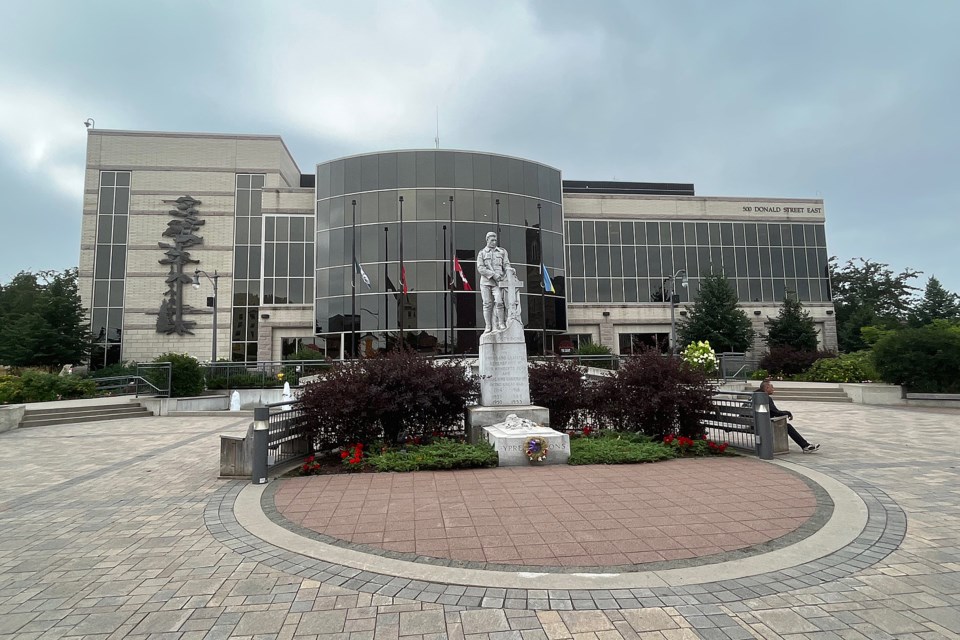THUNDER BAY — Details of candidate spending in last year’s municipal election have been released, revealing largely status quo expenses for top mayoral hopefuls and an unusually high spend by one at-large candidate.
The City of Thunder Bay posted candidates’ financial statements on its website Wednesday in compliance with provincial legislation.
The documents show at-large candidate Coun. Rajni Agarwal spent over $27,000 in a largely self-financed campaign, nearly as much as Mayor Ken Boshcoff and more than other mayoral candidates.
It's the highest campaign spend by a non-mayoral candidate in either the 2018 or 2022 election cycles, and nearly triple the amount reported by the at-large race's second-highest spender, Matthew Villella, who placed 11th.
Just over $2,200 of Agarwal's total went toward a financial audit required of candidates who spend over $10,000.
Spending by the other successful at-large candidates ranged from $2,855 (Coun. Mark Bentz) to $6,586 (Coun. Shelby Ch'ng).
In an interview, Agarwal said the higher spend helped get her name out during a relatively brief campaign.
“My campaign was very short – I decided to run at the end of July, I put my name forward in August,” she said. “There was a large pool of candidates, [around] 20 people, and as a first-time [candidate] coming in at almost the 11th hour, the investment had to be made, or I don’t know if the success would have been there.”
Like most candidates, Agarwal's biggest expense was advertising, followed by signs. She said she looked to reach numerous demographics through billboards and TV, radio, and online ads, spending nearly $15,000.
Boshcoff reported just over $29,000 in expenses, similar to the amounts spent by leading mayoral candidates in 2018 — though eventual winner Bill Mauro spent just $21,000 in that campaign.
Boshcoff funded only around $1,200 of that himself, raising the rest through donations.
Third-place finisher Peng You spent around $26,700 in his campaign, contributing over $19,000 of that value himself.
A handful of candidates, including mayoral runner-up Gary Mack, did not file financial statements by the deadline of March 31, the city reported.
Those candidates must now file their statements by May 1, along with a $500 late fee, to avoid penalties that include being barred from running in the 2026 election. Mack could not immediately be reached for comment on Wednesday.
Mayoral candidate Clint Harris reported just over $9,500 in expenses, while Robert Szczepanski spent $3,000.
In ward races, spending by successful candidates ranged from $1,906 (Neebing Coun. Greg Johnsen) to $7,319 (Current River Coun. Andrew Foulds).
The highest spenders in ward races overall were Lori Paras, who spent over $9,700 in her bid to unseat Coun. Brian Hamilton in the McKellar ward, and Jason Veltri, who spent nearly $9,400 in his Red River ward campaign.
Reported campaign spending by all council candidates added up to around $315,000.
Bentz, one of the lowest-spending successful candidates, said money clearly influences candidates' electoral prospects.
“I would say that the more you spend, the more likely you are to be successful – that’s kind of been proven in U.S. elections,” he said.
However, he added that good candidates can raise funds through donations, and ward candidates in particular can largely make up for dollars with old-fashioned hustle.
“It’s door-to-door,” he said. “My first couple of runs, I was at lots of doors, and that’s free – that’s the way I approached it… That’s very typical in the wards.”
The financial filings speak for themselves, showing clearly that money isn't the be-all, end-all, said Agarwal.
“If you look at the other candidates who ran, some of their budgets were much smaller than mine, and they were successful as well,” she said. “So I don’t think it’s the amount of money you invest, it’s how you want to invest it.”
“What others spent and what I spent, they could be a lot different. The successes, I think, were due to the fact that people wanted to hear from all the candidates what they were involved in, what they were doing.”
The overall spending limit for candidates is set based on a formula of $7,500 plus 85 cents for each eligible voter for mayoral candidates, and $5,000 plus 85 cents for each eligible voter for council hopefuls.
Bentz said while those rules are set by the province, he believes the limits - which amounted to over $75,000 for at-large candidates - go beyond what's appropriate.
“It’s not for me to say, but I think they’re far too high," he said. "Who in their right mind would spend the limit? That would be grounds for not being elected, in my opinion.”
Candidates and their spouses can fund their own campaigns, to limits of roughly $24,000 in the mayoral race, $21,500 in the at-large race, and around $7,000 in most ward races.
Individual donors can contribute a maximum of $1,200 to any one candidate, and $5,000 in total.
The Municipal Elections Act requires the municipality to publicly report on compliance with campaign finance reporting rules.
Any eligible voter who believes a candidate may have contravened campaign finance rules can apply for a compliance audit of the candidate’s finances.
More information is available at the city’s election website.
